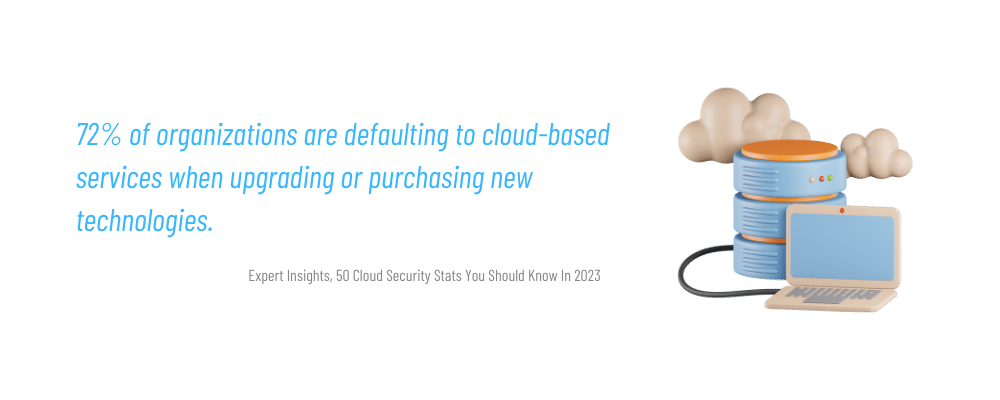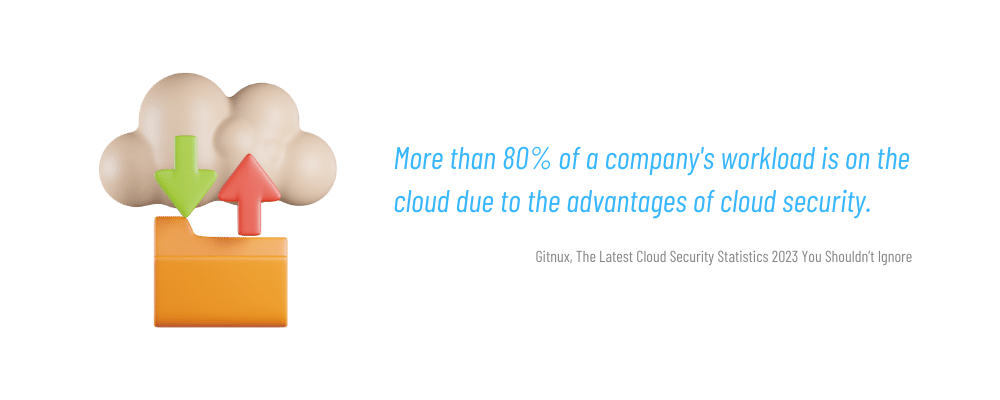Cloud computing has become an integral part of the modern technological landscape, offering numerous benefits such as scalability, cost-efficiency, and flexibility. However, there are several misconceptions and myths surrounding the security of cloud services that often lead to apprehension and doubts. Today, we’re here to debunk some common cloud security myths to provide a clearer understanding of the actual security measures implemented by reputable cloud providers. By dispelling these myths, we aim to help organizations make informed decisions and confidently embrace the potential of cloud computing while ensuring the protection of their data and applications.
Myth 1: Cloud is inherently insecure
One of the most common misconceptions about cloud computing is that it is inherently insecure. In reality, cloud providers invest significant resources into ensuring the security of their infrastructure. They employ advanced security measures, such as encryption, access controls, and regular security audits, to protect data stored in the cloud. However, the security of cloud services also relies on how well they are configured and used by their customers.
Myth 2: Cloud providers have access to all your data
Some people worry that by storing data in the cloud, they are surrendering complete control to the cloud provider. In reality, reputable cloud providers have strict data protection policies in place. They implement strong encryption techniques to ensure that only authorized users can access the data. The provider typically operates under a shared responsibility model, where they are responsible for securing the infrastructure, while customers are responsible for securing their own data and applications within the cloud.

Myth 3: Cloud services are more prone to data breaches
While it is true that high-profile data breaches have occurred in the past, these incidents are not exclusive to the cloud. Both cloud and on-premises environments can fall victim to security breaches. In fact, cloud providers often have more resources dedicated to security than individual organizations. Cloud services can provide robust security measures, including firewalls, intrusion detection systems, and advanced threat intelligence, which can enhance overall security when properly configured and managed.
Myth 4: Cloud services are not compliant with regulations
Another misconception is that using cloud services may violate industry-specific regulations and compliance requirements. In reality, many cloud providers comply with various regulatory frameworks, such as HIPAA, GDPR, and PCI DSS. These providers implement security controls and offer features that help customers meet their compliance obligations. However, it’s crucial for organizations to assess the compliance capabilities of a cloud provider and ensure they align with their specific requirements before migrating sensitive data to the cloud.
Myth 5: Cloud backups are not reliable
Cloud backups are often more reliable than traditional on-premises backups. Reputable cloud providers employ redundant storage systems, distributed data centers, and automated backup processes to ensure data durability and availability. They also perform regular integrity checks to verify the integrity of the backed-up data. However, organizations should still follow best practices, such as maintaining local backups and testing restoration processes periodically, to mitigate any potential risks.

Myth 6: Cloud computing eliminates the need for IT security measures
Transitioning to the cloud does not absolve organizations from implementing proper security measures. While cloud providers handle the security of the underlying infrastructure, customers are still responsible for securing their applications, configurations, access controls, and data within the cloud environment. Implementing strong authentication mechanisms, applying security patches, and employing encryption are some of the essential practices that organizations should follow to enhance cloud security.
While concerns regarding cloud security are understandable, many common myths surrounding cloud security are based on misconceptions. By understanding the shared responsibility model, evaluating cloud providers’ security capabilities, and implementing appropriate security measures, organizations can leverage the benefits of cloud computing while maintaining a strong security posture.
Try Portnox Cloud for Free Today
Gain access to all of Portnox's powerful zero trust access control free capabilities for 30 days!




